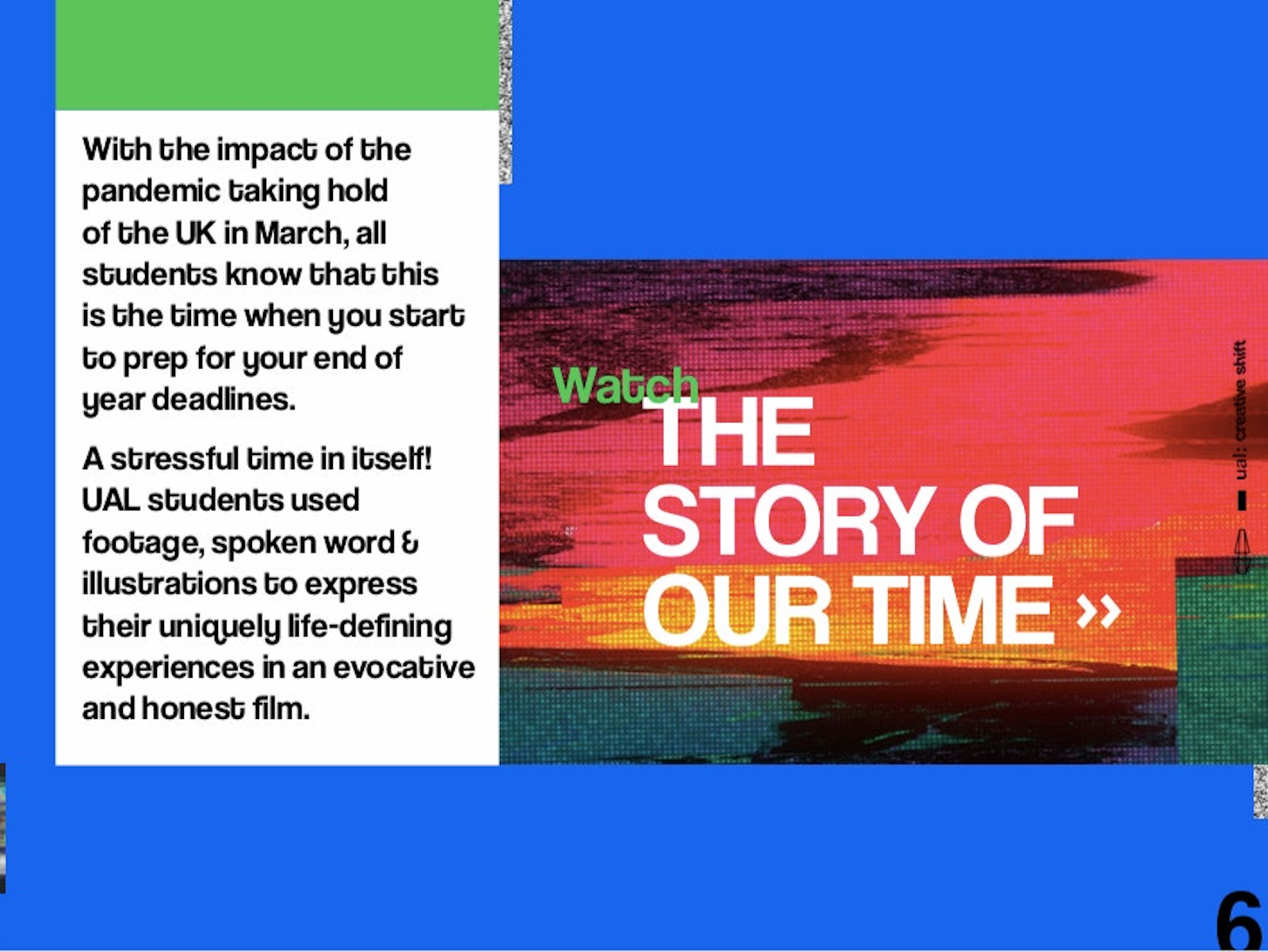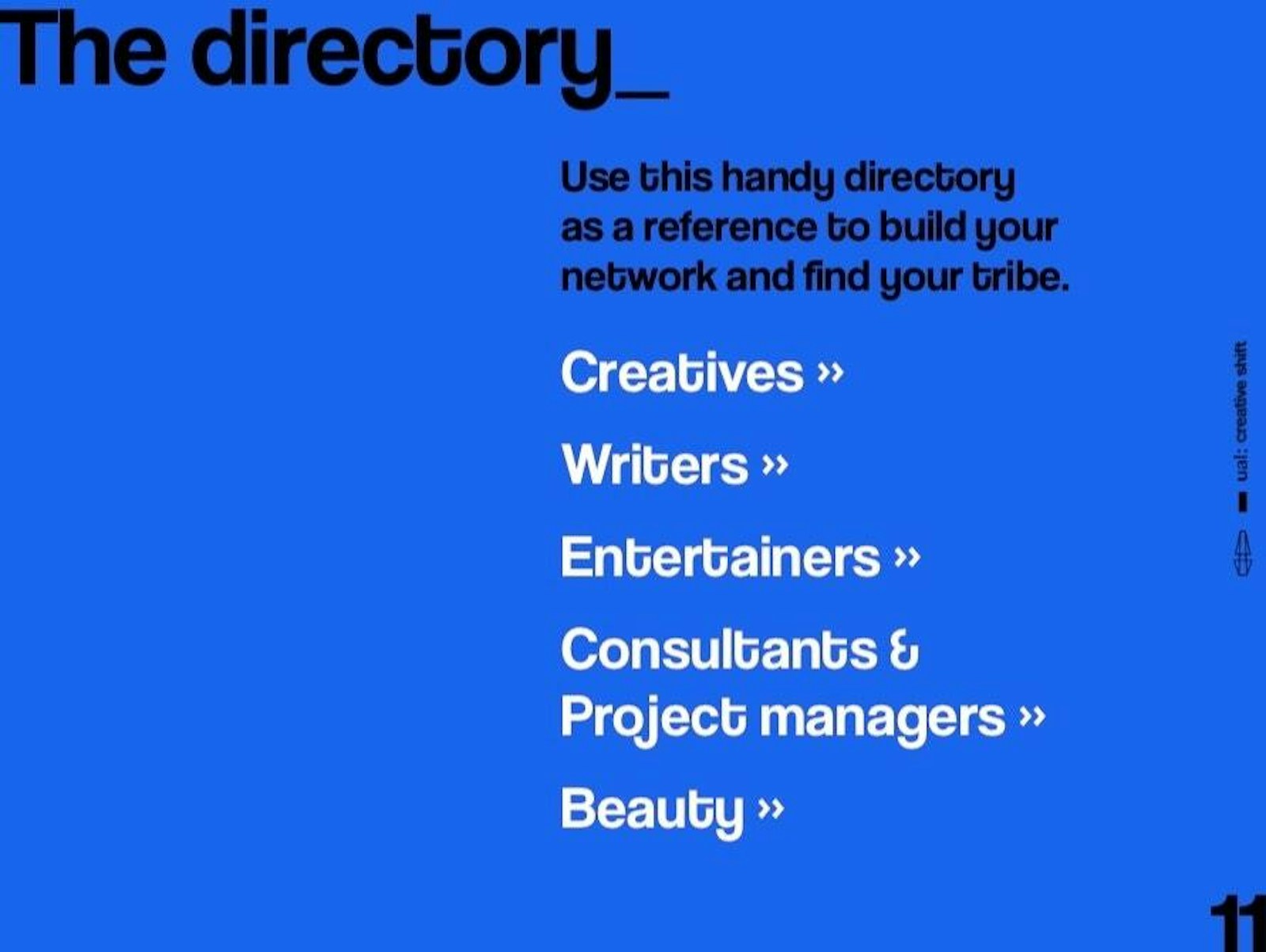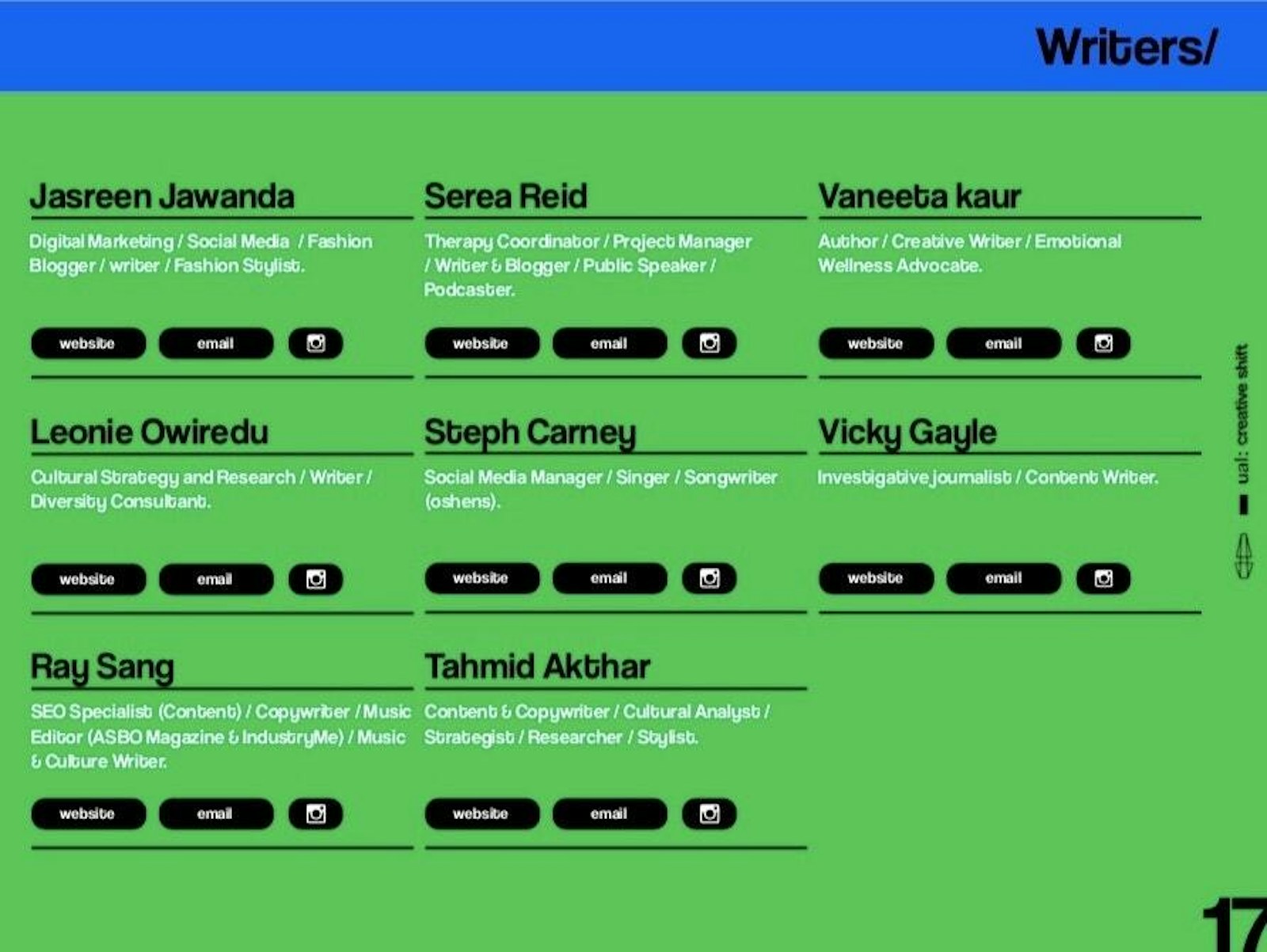The student resource helping creatives get informed and connected
This year has been a particularly tough one for graduates – from a lack of degree show to cancelled opportunities. In response, The Story of Our Time is an information pack and resource created in collaboration with students, filled with inspiration, useful information and an extensive database of creatives to reach out to and connect with. We’re making it available to download below, as we find out more from one of its creators, Shanice Mears.
The Story of Our Time is a practical and inspiring information pack, created for recent grads and those just starting out on their creative journey. It includes everything from an incredible list of contacts to build up your network, to useful resources to help you navigate the industry, as well as thoughtful content on the student experience through lockdown.
Everything inside has been designed to support those who are underrepresented in their sectors, so each chunk of information, piece of work and contact will provide readers with useful advice towards achieving a sustainable career in the industry.
The pack has been created by students from University of the Arts London’s Creative Shift collective (Luna Islam, Helena Cartiege, Val Toro, Sonia Vico, Becky Hancock, Samia Addad, Dominik Slowik, Amelia Kociolkowska, Nadia Lino and Dilsah Kavas), in partnership with The Elephant Room – a creative agency dedicated to supporting and working with young talent.

Who is this pack for?
Co-creator and head of talent at The Elephant Room, Shanice Mears, describes it as “a resource pack for everyone”, compiled with students and emerging talent in mind.
Not all graduates and emerging creatives have access to professional contacts, experience and support, so this pack is aimed at filling that gap – giving an extra confidence boost to anyone wanting to push forward in their careers.


How should the pack be used?
One of the central and most generous parts of this pack is its extensive directory of over 90 established creatives – all currently working in industry and open to hearing from those just starting out, complete with their contact details. This includes professionals from a huge range of creative sectors, from visual creators and writers, to project managers and consultants.
In addition, The Story of Our Time provides an opportunity to discover talented UAL students and their work; features invaluable resources, such as platforms offering business grants, grants for individual creatives and accessible mental-health support; and includes a list of recommended Black-owned businesses to check out.
Shanice recommends using the pack as a practical guide, whether that’s for creative inspiration or some extra help. “Use it for support in terms of the different tools that have been provided,” she says, “not only the directory, because – although yes, that is great – this is supposed to be inspiring and practical. Look at the funding and mental health websites that have been helpful. Because let’s admit it, 2020 has not been easy. I’d just say use it to your advantage and keep sharing amongst your peers.”

Some tips for using the directory
Entering industry can feel pretty terrifying from the outside, and this is only amplified when you don’t have people you can turn to for guidance. The pack’s directory section offers the chance to get in touch with experienced and trailblazing professionals, especially for those who are underrepresented in the industry.
Since it can be hard to know how to reach out to new contacts, we asked Shanice to share her advice on using the directory and how to open up the conversation:
Research new contacts before reaching out
“I think it’s really important to show that you’ve done your research on the person or people you are reaching out to.”
Tell them why you admire them or their work
“It might sound silly or cliché, but be complimentary,” she says. “Point out something you might have seen them do in the past or something you feel like you have similarities in.”
Be clear about what you want
“It’s also important to be intentional: what is the point of you reaching out? Would you like an opportunity to work, is it mentoring, or are you just growing your network? Establish that before you start the conversation, and if you don’t know, be honest and say that too. But ultimately, be nice and be humble. People will appreciate that.”
Written by Creative Lives in Progress
